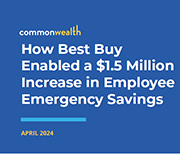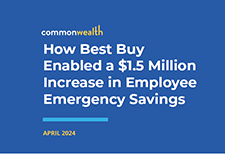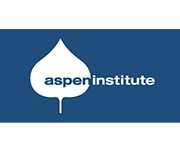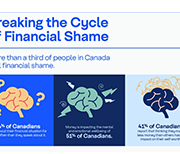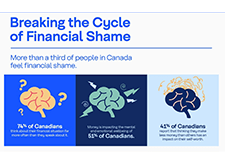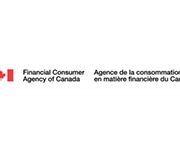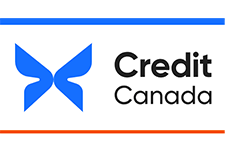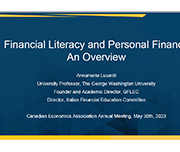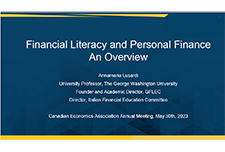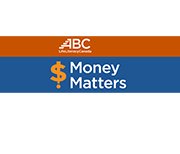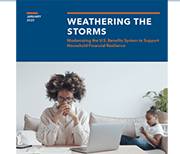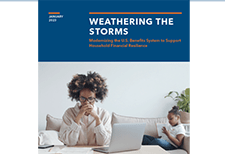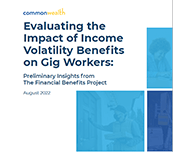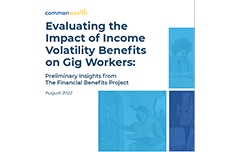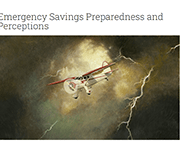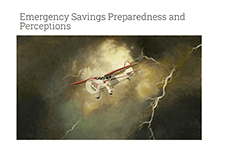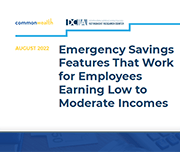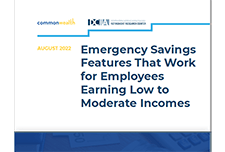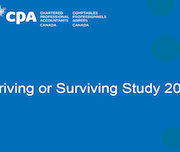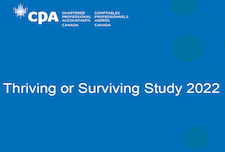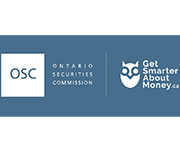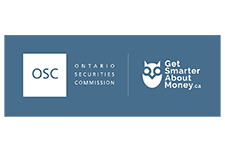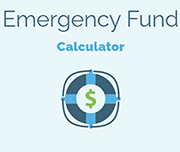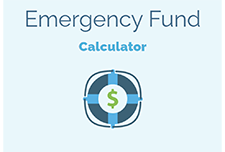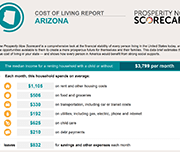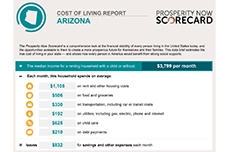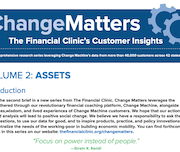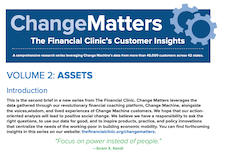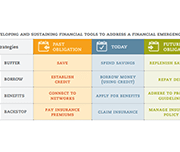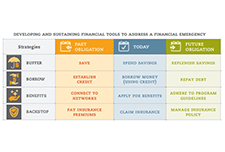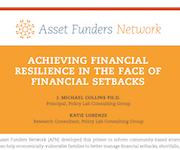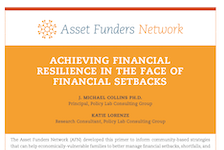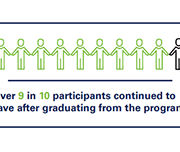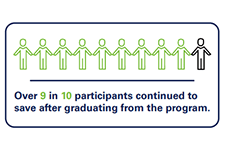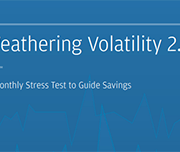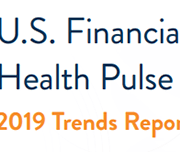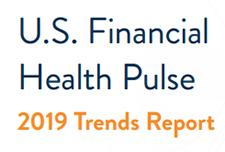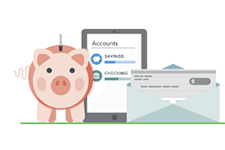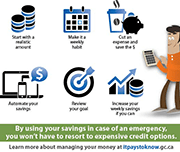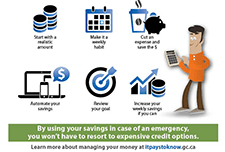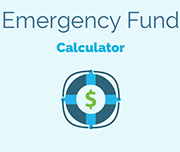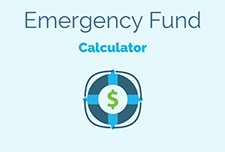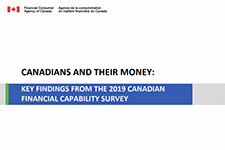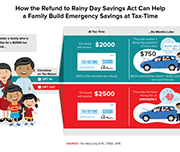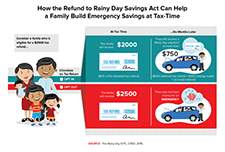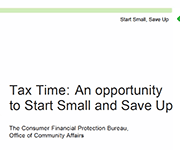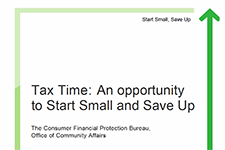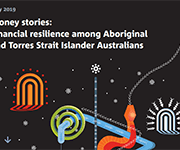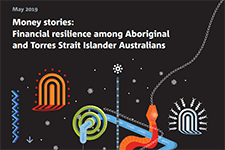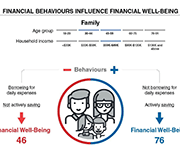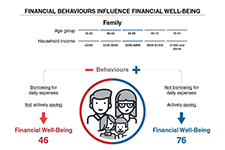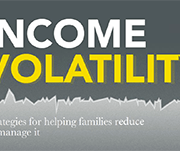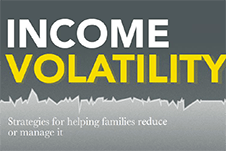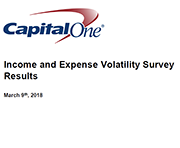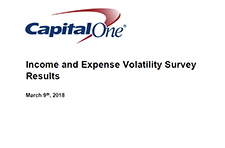English
Soaring with savings - Tips and tools to help you save
SWS Worksheet #1 – The importance of saving (Fillable PDF)
SWS Worksheet #2 – Create a savings goal (Fillable PDF)
SWS Worksheet #3 – Savings support network (Fillable PDF)
SWS Worksheet #4 – Saving for emergencies (Fillable PDF)
SWS Worksheet #5 – Saving for unstable income (Fillable PDF)
SWS Worksheet #6 – Saving for education (Fillable PDF)
SWS Worksheet #7 – Saving for retirement (Fillable PDF)
Soaring with Savings- Full booklet

Soaring with savings - Training tools
French
Encourager l’épargne - Conseils et outils pour vous aider à épargner
Encourager l’épargne - l’aide d’animation
Ressources
CELI calculatrice, La Commission des valeurs mobilières de l’Ontario
REER, La Commission des valeurs mobilières de l’Ontario
Épargnez plus facilement, CVMO
Investir et épargner pendant une récession, La Commission des valeurs mobilières de l’Ontario
English
Investing with interest: tips and tools for maximizing your savings
IWI – Worksheet #1: What do you want to save for?
IWI – Worksheet #2: Tracking your income and expenses
IWI- Worksheet #3: Are you ready to invest?
IWI- Worksheet #4: What can you invest in?
IWI-Worksheet #5: Where can you get advice?
IWI-Worksheet #6: Watch out for investment frauds and scams
IWI-Worksheet #7: Tips for success
Resources
Crypto Quiz, OSC
Grandparent scams and how to avoid them, OSC
Compound interest calculator, OSC
Emergency fund calculator, OSC
Tips to keep your credit card safe, OSC
Investment products, OSC
Types of fraud, OSC
Multilingual financial resources for Ontarians, OSC
Pay down debt or invest tool, OSC
Reporting fraud, OSC
Introduction to investing, OSC
Scam spotter tool, OSC
Your trusted person and why they matter, OSC
Getting Your Money Back; An Investor’s Guide to Navigating Canada’s Complaint System, FAIR Canada
Study explores Canadian attitudes about Crypto, OSC
How the stock market works, OSC
The basics of personal finance, Credit Canada
What is risk tolerance in investing, OSC
Eight common investment scams and how to spot them, OSC
4 signs of investment fraud, OSC
Evolution of the fraud pitch , Canadian Anti Fraud Centre
Saving or investing for short-term goals, OSC
Investor questionnaire, CIRO
Fees matter, MFDA
Fee calculator, OSC
Annual information about your investment fees, OSC
Investing basics, CIRO
The many faces of elder abuse, OSC
How to Read Your Account Statement and the Things to Focus on, CIRO
French
L’intérêt d’investir: Conseils et outils pour maximiser votre épargne
Ressources
Questionnaire sur les cryptoactifs, Commission des valeurs mobilières de l’Ontario
Les arnaques des grands-parents et comment les éviter, Commission des valeurs mobilières de l’Ontario
Calculatrice épargne REER, Commission des valeurs mobilières de l’Ontario
Calculatrice intérêts composés, Commission des valeurs mobilières de l’Ontario
Calculatrice fonds d’urgence, Commission des valeurs mobilières de l’Ontario
Astuces pour garder votre carte de crédit en toute sécurité, Commission des valeurs mobilières de l’Ontario
Produits d’investissement, Commission des valeurs mobilières de l’Ontario
Types de fraude, Commission des valeurs mobilières de l’Ontario
Ressources financières multilingues pour les Ontariennes et les Ontariens, Commission des valeurs mobilières de l’Ontario
Calculatrice rembourser des dettes ou investir, Commission des valeurs mobilières de l’Ontario
Signaler une escroquerie, Commission des valeurs mobilières de l’Ontario
Planification de la retraite, Commission des valeurs mobilières de l’Ontario
Questionnaire préparation des investisseurs, Commission des valeurs mobilières de l’Ontario
Introduction au placement, Commission des valeurs mobilières de l’Ontario
Outil détecteur d’escroquerie, Commission des valeurs mobilières de l’Ontario
Votre personne de confiance et les raisons qui expliquent son importance, Commission des valeurs mobilières de l’Ontario
Une étude explore les attitudes des Canadiens à l’égard de la cryptomonnaie, Commission des valeurs mobilières de l’Ontario
Le fonctionnement de la bourse, Commission des valeurs mobilières de l’Ontario
Académie d’investissement, Commission des valeurs mobilières de l’Ontario
Quelle est votre tolérance au risque en matière d’investissement? CVMO
Huit escroqueries courantes en matière d’investissement et comment les repérer, CVMO
Quatre signes de fraude liée aux placements, CVMO
Bulletin : Évolution des types de fraudes, Centre centreantifraude du Canada
Épargner ou investir pour réaliser des objectifs à court terme, CVMO
Questionnaire de l’investisseur, OCRI
Calculateur de frais, CVMO
Information annuelle sur vos frais de placement, CVMO
Principes de base en matière de placement, OCRI
Choisir un conseiller, OCRI
Les nobreuses facettes de l’exploitation financière envers les personnes âgées, CVMO
Comment lire votre relevé de compte et les éléments particuliers qu’il contient, OCRI
Money matters
Money Matters is a free introductory financial literacy program for adult learners that has been delivered to Canadians since 2011 and has reached over 80,000 adults. It was developed by ABC Life Literacy Canada in partnership with the Government of Canada and TD Bank Group and was designed by literacy practitioners. The newly released resources as part of the Money Matters program are:
Weathering the storms: modernizing the U.S. benefits system to support household financial resilience
For most households in America, financial shocks are inevitable. The car will break down. The house will need a repair. A key earner for a household will be laid off. These shocks can be devastating to household finances. And while the COVID-19 pandemic, which we are still recovering from, was a once-in-a-generation economic and health shock for households and our economy, we also know that it is just one example of the uncertainty and volatility of the world we now live in. When public and private benefits—such as unemployment insurance and paid sick leave—are not accessible and not designed or delivered in a timely manner to effectively support families in weathering financial shocks, families suffer. To effectively modernize our benefits system to help people weather financial shocks—both small and large— requires an evidence-based framework focused on what households need to be financially resilient and on opportunities for benefit leaders to address those needs. This paper lays out the framework by:
Evaluating the impact of income volatility benefits on gig workers
Gig workers account for approximately 25 to 35% of the national workforce. When considering workers earning low to moderate incomes (LMI), these percentages are likely higher. Gig work provides reported advantages including flexibility, supplemental income, and independence. However, it also brings unique financial challenges such as complicated taxes, low and unpredictable wages, and difficulty accessing benefits. Due to these barriers to financial security, gig workers are often unable to build an emergency savings reserve. Commonwealth launched the Financial Benefits Project pre-pilot to further explore the financial needs of gig workers and to outline recommendations for employer benefits that reduce the impact of income volatility. In combination with schedule stability and predictable wages, income volatility benefits have the potential to help workers earning LMI manage from day to day, particularly given the reduction of COVID-19 supports. Across two cohorts, Commonwealth evaluated the impact of three interventions on financial hardships for 138 gig workers enrolled in the project. Participants were eligible for up to $1,000 in funds over a four-month period through weekly stipends, emergency grants, and emergency loans.
Emergency savings preparedness and perceptions
According to Employee Benefit Research Institute (EBRI), workers with household incomes of $75,000 or more are more than twice as likely to say they feel they can handle an emergency expense than those with household incomes of less than $35,000. This report outlines the results of the 2022 survey that polled nearly 2700 Americans 25 and older.
Emergency savings features that work for employees earning low to moderate incomes
Workers earning low to moderate incomes (LMI) continue to face challenges in financial security. The COVID-19 pandemic exacerbated the financial situation of many workers earning LMI. Along with the current macroeconomic environment, it has become even more challenging to build liquid savings for unexpected expenses. In this brief, we will share insights from our latest research with DCIIA Research Retirement Center on how employers and service providers can build and offer emergency savings solutions that are inclusively designed for workers earning LMI.
Preparing for financial emergencies
Some emergencies in life can affect you financially. You could get sick, lose your job, or have a costly repair to your car or home. One of the best ways to cope with unexpected financial changes is to have an emergency fund. Ideally, this fund would provide enough money to cover your essential living expenses so you can avoid taking on debt.
Emergency fund calculator
Some emergencies in life can affect you financially. You could get sick, lose your job, or have a costly repair to your car or home. An emergency fund can provide a financial safety net. Ideally, this fund would provide enough money to cover your essential living expenses so you can avoid taking on debt. Use OSC's calculator to estimate how much money should be set aside to pay for financial emergencies.
Recordkeepers’ Role in Providing Emergency Savings for an Inclusive Recovery
In this webinar, Commonwealth in partnership with DCIIA Retirement Research Center (RRC) and SPARK Institute present findings from our new research about drivers and considerations of recordkeeper-provided emergency savings and host a discussion with industry experts.
Prosperity Now Scorecard Cost-Of-Living Profiles by State
Prosperity Now has created state-level Cost-of-Living profiles as new features on their Scorecard website. The Prosperity Now Cost of Living profiles provide a comprehensive look at the financial stability of every person living in the United States. Each state profile can be downloaded and used to determine the true cost of living is in the state, based on median monthly income and discretionary spending left at the end of each month after expenses. These values determine what is left over for emergency expenses and long-term aspirational expenses. This video presents the cost of living in Georgia.
Change Matters Volume 2: Assets
This is the second brief in a new series from The Financial Clinic. Change Matters leverages the data gathered through our revolutionary financial coaching platform, Change Machine, alongside the voices, wisdom, and lived experiences of Change Machine customers. We hope that our action oriented analysis will lead to positive social change. We believe we have a responsibility to ask the right questions, to use our data for good, and to inspire products, practice, and policy innovations that centralize the needs of the working-poor in building economic mobility.
Achieving Financial Resilience in the Face of Financial Setbacks
Financial shocks like these happen to financially vulnerable families every day. Such shocks destabilize household finances and can create hardships that threaten overall well-being. Having tools to manage financial emergencies is critical for people’s long-run financial security. The Asset Funders Network (AFN) developed this primer to inform community-based strategies that can help economically-vulnerable families to better manage financial setbacks, shortfalls, and shocks. The goal of this brief is to provide a common understanding and language for funders and financial capability programs as part of a financial emergency toolkit.
Achieving financial resilience in the face of financial setbacks
The Asset Funders Network (AFN) developed this primer to inform community-based strategies that can help economically-vulnerable families to better manage financial setbacks, shortfalls, and shocks. The goal of this brief is to provide a common understanding and language for funders and financial capability programs as part of a financial emergency toolkit.
Set a Goal: What to Save For
America Saves, a campaign managed by the nonprofit Consumer Federation of America, motivates, encourages, and supports low- to moderate-income households to save money, reduce debt, and build wealth. Information and tips for setting a savings goal, making a savings plan, how to save automatically, and other tools and resources are included.
The Impact of Matched Savings Programs: Building Assets & Lasting Habits
Matched Savings programs, or Individual Development Accounts, are a financial empowerment strategy that aim to build financial stability and reduce poverty. These programs build sustainable livelihoods by working with participants to earn savings while learning about money management, build regular savings habits, self-confidence, and hope for the future. Matching This brief presents key findings from Momentum's Matched Saving programs and the impact on program graduates' saving habits, establishment of emergency savings, and contribution to registered savings.
funds act as a power boost to the participants’ own savings, allowing them to purchase productive assets to move their lives forward.
Weathering Volatility 2.0: A Monthly Stress Test to Guide Savings
In this report, the JPMorgan Chase Institute uses administrative bank account data to measure income and spending volatility and the minimum levels of cash buffer families need to weather adverse income and spending shocks. Inconsistent or unpredictable swings in families’ income and expenses make it difficult to plan spending, pay down debt, or determine how much to save. Managing these swings, or volatility, is increasingly acknowledged as an important component of American families’ financial security. This report makes further progress toward understanding how volatility affects families and what levels of cash buffer they need to weather adverse income and spending shocks.
U.S. Financial Health Pulse: 2019 Trends Report
This report presents findings from the second annual U.S. Financial Health Pulse, which is designed to explore how the financial health of people in America is changing over time. The annual Pulse report scores survey respondents against eight indicators of financial health -- spending, bill payment, short-term and long-term savings, debt load, credit score, insurance coverage, and planning -- to assess whether they are “financially healthy,” “financially coping,” or “financially vulnerable”. The data in the Pulse report provide critical insights that go beyond aggregate economic indicators, such as employment and market performance, to provide a more accurate picture of the financial lives of people in the U.S.
When a Job Is Not Enough: Employee Financial Wellness and the Role of Philanthropy
This report sheds light on the role employers and philanthropy can play in best promoting financial well-being for workers through the offering of Employee Financial Wellness Programs (EFWPs). Data suggests that EFWPs improve employees financial stability and help create a more productive work enviroment.
COVID-19: Managing financial health in challenging times
This guide from the Financial Consumer Agency of Canada shares guidelines and financial tips to help Canadians during COVID-19. The topics include: getting through a financial emergency, where to ask questions or voice concerns, what to do if your branch closes, and more.
How to use your tax refund to build your emergency savings
If you file your taxes in the United States, you can learn how your tax return can kickstart your savings. This guide from the Consumer Financial Protection Bureau walks you through some fast and easy ways to use your tax refund to increase your savings. This guide covers multiple topics including: why save your tax return, how to save money fast, affordable ways to file your taxes, and how to protect yourself from tax fraud.
Infographic: Avoid financial stress, save for emergencies
This infographic illustrates the importance of having an emergency fund and how to build one.
Emergency Fund Calculator
Some emergencies in life can affect you financially. You could get sick, lose your job, or have a costly repair to your car or home. An emergency fund can provide a financial safety net. Use this calculator to estimate how much money should be set aside to pay for financial emergencies.
Canadians and their money: Key findings from the 2019 Canadian Financial Capability Survey
This report provides results from the 2019 Canadian Financial Capability Survey (CFCS). It offers a first look at what Canadians are doing to take charge of their finances by budgeting, planning and saving for the future, and paying down debt. While the findings show that many Canadians are acting to improve their financial literacy and financial well-being, there are also emerging signs of financial stress for some Canadians. For example, about one third of Canadians feel they have too much debt, and a growing number are having trouble making bill, rent/mortgage and other payments on time. Over the past 5 years, about 4 in 10 Canadians found ways to increase their financial knowledge, skills and confidence. They used a wide range of methods, such as reading books or other printed material on financial issues, using online resources, and pursuing financial education through work, school or community programs. Findings from the survey support evidence that financial literacy, resources and tools are helping Canadians manage their money. For example, those who have a budget have greater financial well-being based on a number of indicators, such as managing cashflow, making bill payments and paying down debt. Further, those with a
financial plan to save are more likely to feel better prepared and more confident about their retirement.
Financial well-being in Canada
Financial well-being is the extent to which you can comfortably meet all of your current financial commitments and needs while also having the financial resilience to continue doing so in the future. But it is not only about income. It is also about having control over your finances, being able to absorb a financial setback, being on track to meet your financial goals, and—perhaps most of all—having the financial freedom to make choices that allow you to enjoy life. The Financial Consumer Agency of Canada (FCAC) participated in a multi-country initiative that sought to measure financial well-being. FCAC conducted this survey to understand and describe the realities of Canadians across the financial well-being spectrum and help policy-makers, practitioners and Canadians themselves achieve better financial well-being. This is in keeping with the Agency’s ongoing work to monitor trends and emerging issues that affect Canadians and their finances.
Helping Families Save to Withstand Emergencies
This brief identifies policy solutions to help American families build savings to withstand emergencies that threaten their financial stability.
Saving for Now and Saving for Later: Rainy Day Savings Accounts to Boost Low-Wage Workers’ Financial Security
This report discusses the vulnerability of millions of people in the US who lack adequate emergency savings. A workplace-based solution—rainy day savings accounts— can potentially help workers with low savings weather financial shocks.
Tax Time: An opportunity to Start Small and Save Up
The Consumer Financial Protection Bureau’s continuing effort to encourage saving at tax time is now part of a larger Bureau initiative to support people in building liquid savings. The new initiative is called Start Small, Save Up. The vision for Start Small, Save Up is to increase people’s financial well-being through education, partnerships, research, and policy or regulatory improvements that increase people's opportunities to save and empower them to realize their personal savings goals. This paper provides a description of how having liquid savings contributes to people’s financial stability and resiliency, and the unique opportunity that tax time offers to begin saving for the short and longer term. Starting to save or continuing to save when receiving a tax refund may lead to longer term financial well-being.
Money stories: Financial resilience among Aboriginal and Torres Strait Islander Australians
This report builds on previous work on financial resilience in Australia and represents the beginning of an exploration of the financial resilience of Aboriginal and Torres Strait Islander peoples. Overall, we found significant economic disparity between Indigenous and non-Indigenous Australians. This is not surprising, given the histories of land dispossession, stolen wages and the late entry of Indigenous Australians into free participation in the economy (it is only 50 years since the referendum to include Aboriginal and Torres Strait Islander peoples as members of the Australian population). Specifically, we found: Severe financial stress is present for half the Indigenous population, compared with one in ten in the broader Australian population. Read the report to find out more about the financial barriers faced by Indigenous people in Australia, and the sharing economy in which money as a commodity can both help and hurt financial resilience.
Backgrounder: Preliminary findings from Canada’s Financial Well-Being Survey
This backgrounder reports preliminary findings from a survey of financial well-being among Canadian adults. Preliminary analysis of the survey data indicates that two behaviours are particularly important in supporting the financial well-being of Canadians. First, our analysis indicates that Canadians who practice active savings behaviour have higher levels of financial resilience as well as higher levels of overall financial well-being. In other words, regardless of the amount of money someone makes, regular efforts to save for unexpected expenses and other future priorities appears to be the key to feeling and being in control of personal finances. Secondly, Canadians who often use credit to pay for daily expenses because they have run short of money have lower levels of financial well-being. While this behaviour is likely symptomatic of low levels of financial well-being, our analysis indicates that a person can substantially improve their financial resilience and financial well-being by implementing strategies to reduce the frequency of running out of money and of having to rely on credit to get by.
Income volatility: Strategies for helping families reduce or manage it
In this video presentation David Mitchell from the Aspen Institute explains strategies for mitigating and preventing income volatility at the household level. This presentation was given at the Prosper Canada Policy Research Symposium on March 9, 2018. Read the slide deck that accompanies this presentation. View the full video playlist of all presentations from this symposium.
Income and Expense Volatility Survey Results
In this video presentation Patrick Ens from Capital One explains the impact of income and expense volatility on consumers. Capital One found that half of Canadian households surveyed experience some amount of income fluctuation month to month. This impacts their ability to save, cope with emergencies, and other aspects of their lives. This presentation was given at the Prosper Canada Policy Research Symposium on March 9, 2018. Read the slide deck that accompanies this presentation. Pour lire les diapositives de la présentation, cliquez ici. View the full video playlist of all presentations from this symposium.
Savings for the Future Solving the Savings Puzzle for Low Income Households
People manage their money in a variety of different ways, sometimes in ways that others fail to understand, but that work well for them. The research in this new report focuses on one of those ways: informal saving. Informal saving can take many forms: saving in cash at home (sometimes literally in jam jars), careful spending and shopping, letting a current account balance mount up, savings stamps and over-payment on prepayment meters. However, there has been very little research carried out into what motivates people to save informally. This report plugs that gap. In so doing we find that low income individuals and households employ a variety of informal savings techniques that help them to be more financially resilient, particularly with budgeting and preparing for unforeseen expenses. Overall this report helps to dispel the myth that people on a low income do not have savings methods or personal techniques to build financial resilience.
Financial well-being in America
There is wide variation in how people in the U.S. feel about their financial well-being. This report presents findings from a survey by the Consumer Financial Protection Bureau (CFPB) on the distribution of financial well-being scores for the U.S. adult population overall and for selected subgroups defined by these additional measures. These descriptive findings provide insight into which subgroups are faring relatively well and which ones are facing greater financial challenges.



